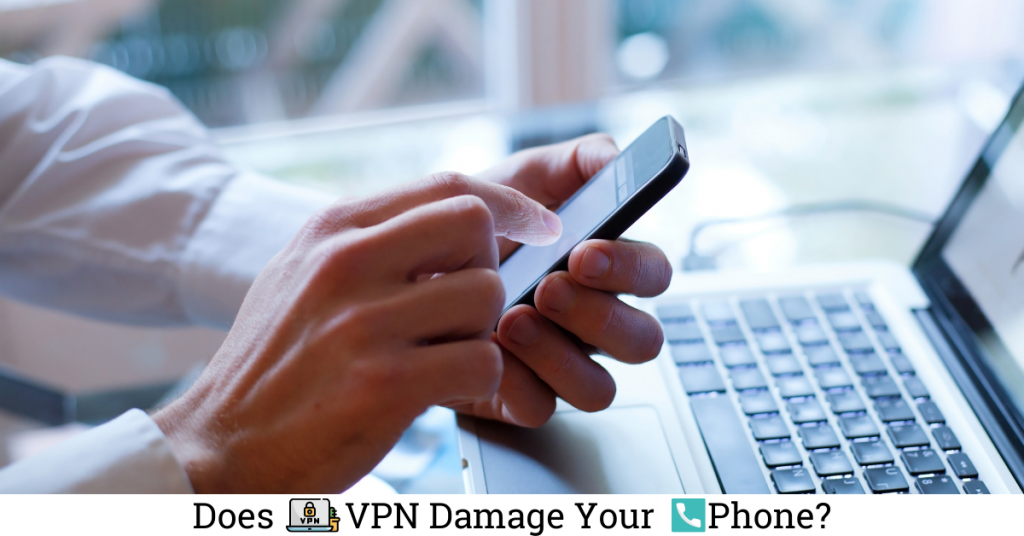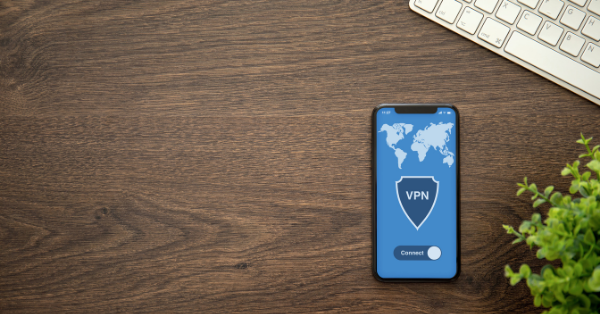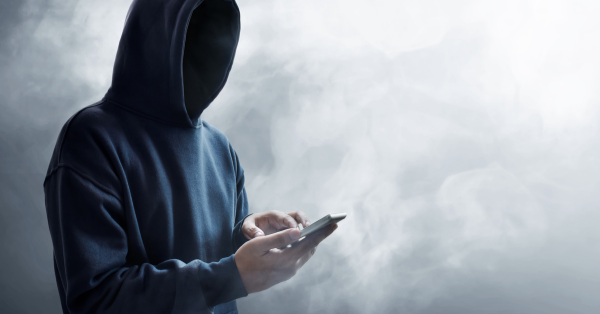While virtual private networks (VPN) have come to be known as a way to gain access to geo-restricted content, they’re also known for some serious privacy invasion schemes and, in some cases, people have spread the word that VPNs can damage your phone. But do they really cause any damage to your phone?
Using a trusted VPN provider on your handheld mobile phone device will not cause any damage. There are numerous popular VPN apps available and that are safe to use on your phone which are no different from using a VPN on your PC device and come with the same risks.
So, what makes a VPN service a “trusted” service, and which VPN provider is the right one for you to use on your phone? Continue reading below to have the mysterious phone damaging VPN myth debunked and find out for good what’s really going on with VPN services and your mobile phone.

Do VPN Services Come with a Catch?
Using a VPN on your phone is the same as using a VPN on your PC, and any other device you might have connected a VPN to. It will not damage your device, not your PC or your phone, but will add a layer of privacy and security.
Keep in mind, sometimes VPN services do come with a catch.
There is an insurmountable amount of information regarding VPNs available on the world wide web and it’s hard to know who’s right and who’s not. The bottom line is this; everyone has a different experience with technology, some are better than others.
You might find that people who tell you VPNs are damaging to phones have had a bad experience because they didn’t use a trusted VPN source to begin with.
Is it Safe to Use a VPN on Your Phone?
Have you asked yourself the question if using a VPN is safe on your PC and decided that it is? Now ask yourself why using one on your phone would be any different.
Virtual private networks are designed to encrypt and hide your IP address so that your online browsing information is kept secure and so that you can access blocked content. VPNs serve people by allowing them to safely use public networks and have no fear that their online web traffic can be tracked whether for personal reasons or because people simply like their privacy.
Using a VPN on your phone is as safe as it is to use a VPN on your PC. It might, however, require more permissions to use on your phone than it does on your PC. But that’s an easy task when you use a trusted VPN service.

When Isn’t it Safe to Use a VPN on Your Phone?
As much as we’ve reiterated the fact that using a trusted VPN on your phone is safe, there might be some instances where people have found VPNs on their phone to be not so safe after all.
Is this the VPN server’s fault or the user’s fault? Notice when we say it’s safe to use a VPN on your phone from a “trusted” provider? Users that have had problems with VPNs on their phone probably didn’t take the word trusted under advisement… no offense.
Here’s how to avoid damaging your phone with a VPN:
- Don’t install untrusted apps on your phone, including a VPN service you haven’t researched first
- Choose a safe VPN app that promises protection for your confidential data and information
- Read the privacy policies of a VPN provider before downloading the app, not all of them stay true to their word about protecting your privacy and can data mine and sell your info for money
- Do not use a free VPN service as they’re well-known for data mining and selling “secure” information to third parties for advertising and marketing purposes
- Don’t jailbreak your phone – meaning don’t use your phone and a VPN service for illegal activity. VPN providers can keep track of your online activity
- Avoid pirated or stolen VPNs, also known as cracked VPNs, because they pose multiple security risks like malware and viruses that will damage your phone
- Look for VPNs that come with a secure sockets layer (SSL) certificate
Although more expensive than free services and cheaper VPN options, popular VPN providers like ExpressVPN, NordVPN, and CyberGhost, are recommended because they are easy to use on PCs and phones and are highly rated for their safety.
ExpressVPN is one of the more popular VPN services across the board because it is user friendly, including on PlayStation devices, passes streaming tests with flying colors, has access to thousands of servers so accessing geo-blocks (Netflix, Amazon Prime, and other informational websites) is easy to do.
Connection speeds aren’t hindered by other users and web traffic, and ExpressVPN offers a 30-day money-back guarantee for unsatisfied customers.

How Can VPNs Damage Your Phone?
VPNs are unfortunately not as straightforward as they’re made out to be. Providers lure us in with the words “free”, “secure”, “private”, and “safe”, but it’s not always as simple as that.
There are many cracked VPN providers and untrustworthy providers around that can cause damage to your phone by allowing leaks and access to hackers, vicious viruses, and malware. If you’ve installed a VPN app that didn’t come with good reviews or information protection laws in their privacy policy, you’ve left your phone and your confidential information susceptible to threats.
Should I Leave VPN Running on My Phone?
Generally speaking, if you have a trusted and secure VPN service running on your phone it should be fine to leave it on all the time.
Your VPN app should offer the option to have the VPN always left on, so you never have to worry about forgetting to switch it on when it’s needed. Your privacy will always be kept secure when your phone is in use and when it isn’t if you have a VPN configured to be left on 24/7.
Some services also offer the option to have a kill switch installed so that if your server doesn’t recognize a VPN in use, it automatically turns the internet off until your VPN is logged in.
So, when does VPN come in handy on your phone?
- When using public Wi-Fi networks
- When accessing restricted geography content
- When downloading torrents
- For making online payments
These are all reasons to have a VPN app installed on your phone and to keep your IP address and information secure. Especially when accessing geo-restricted content, making online payments, and downloading torrents with a public Wi-Fi connection. Not using a VPN in any of these circumstances leaves you and your information readily available to ill-intended users.
Having a VPN on your phone and always leaving it on avoids this risk.
The one downfall to this is that you might notice your phone’s battery life doesn’t last as long as it usually would. But we think this is a small price to pay when your private information is on the line.

Conclusion
More people are using their mobile phones every day for sending texts, emails, and accessing social media for private and work use. It makes sense that you want to keep your confidential information as safe as possible when over 4.66 billion people in the world have access to the internet and not all of them have pure intentions.
VPNs add a layer of security and protection to your web browsing activities and personal information and are a good idea to use on your PC, your phones, and other devices that you use to access the internet. If you download a reliable and honest VPN app on your phone, you shouldn’t have any fear of it causing any damage.

Recent Comments